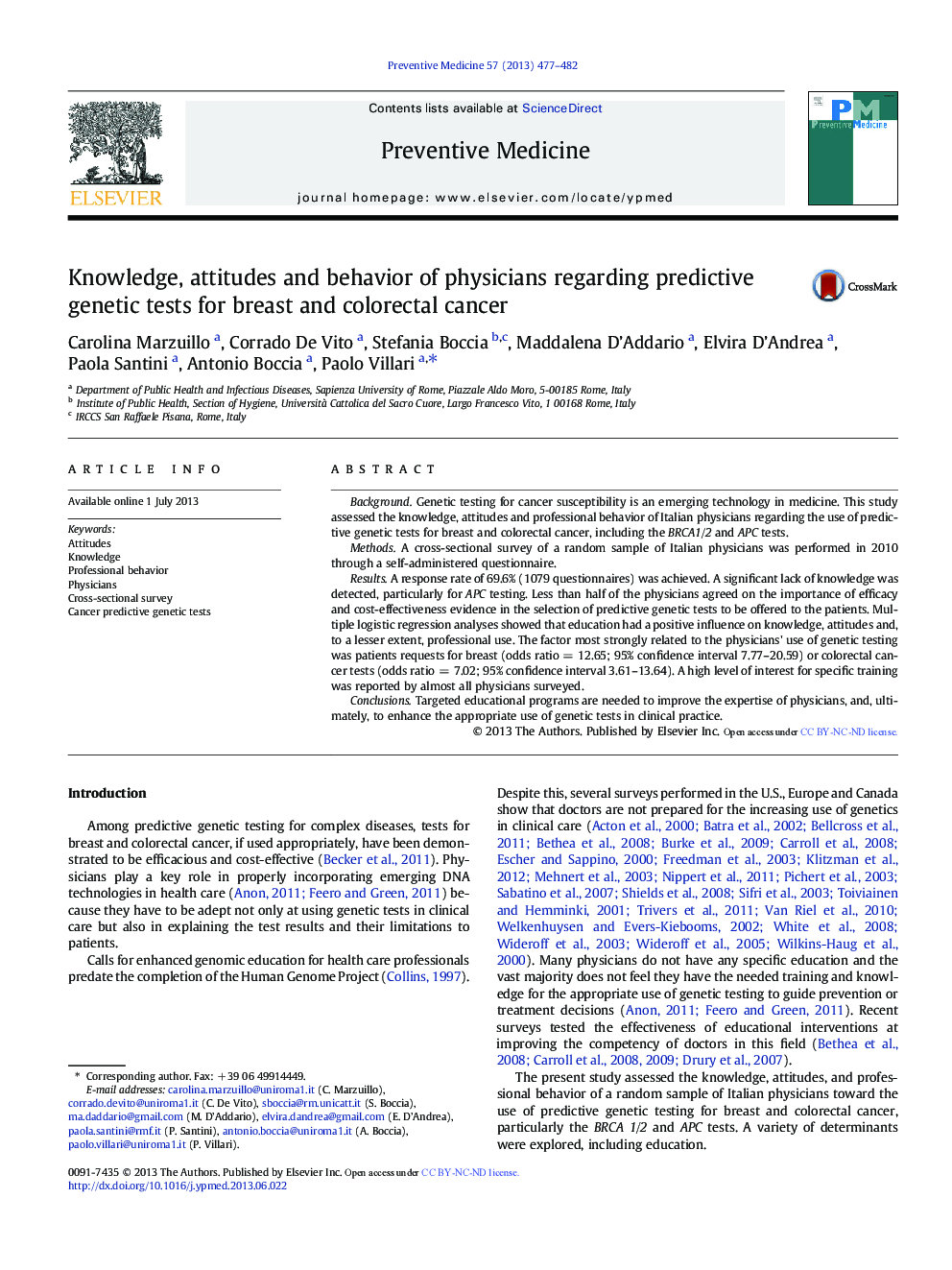| کد مقاله | کد نشریه | سال انتشار | مقاله انگلیسی | نسخه تمام متن |
|---|---|---|---|---|
| 6047439 | 1191198 | 2013 | 6 صفحه PDF | دانلود رایگان |
- Physicians are not prepared yet in the context of cancer genetic predictive testing.
- A lack of knowledge but more positive attitudes were detected in this survey.
- Survey items concerning education improve knowledge, attitudes and professional use.
- Physicians reported high interest in receiving additional specific training in the field.
- A specific health policy regarding public health genomics is needed.
BackgroundGenetic testing for cancer susceptibility is an emerging technology in medicine. This study assessed the knowledge, attitudes and professional behavior of Italian physicians regarding the use of predictive genetic tests for breast and colorectal cancer, including the BRCA1/2 and APC tests.MethodsA cross-sectional survey of a random sample of Italian physicians was performed in 2010 through a self-administered questionnaire.ResultsA response rate of 69.6% (1079 questionnaires) was achieved. A significant lack of knowledge was detected, particularly for APC testing. Less than half of the physicians agreed on the importance of efficacy and cost-effectiveness evidence in the selection of predictive genetic tests to be offered to the patients. Multiple logistic regression analyses showed that education had a positive influence on knowledge, attitudes and, to a lesser extent, professional use. The factor most strongly related to the physicians' use of genetic testing was patients requests for breast (odds ratio = 12.65; 95% confidence interval 7.77-20.59) or colorectal cancer tests (odds ratio = 7.02; 95% confidence interval 3.61-13.64). A high level of interest for specific training was reported by almost all physicians surveyed.ConclusionsTargeted educational programs are needed to improve the expertise of physicians, and, ultimately, to enhance the appropriate use of genetic tests in clinical practice.
Journal: Preventive Medicine - Volume 57, Issue 5, November 2013, Pages 477-482
